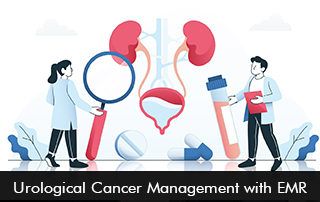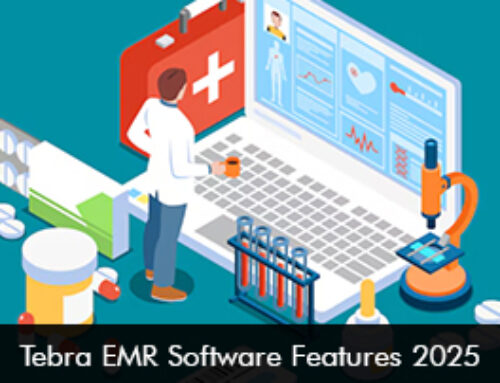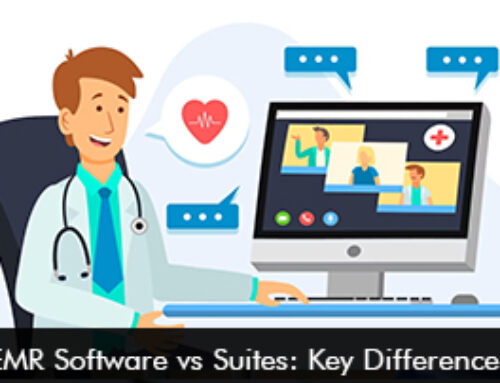The role of EMR and EHR Software in urological cancer management cannot be overstated. From accelerating diagnosis to enabling precision medicine, these systems are transforming oncology care. Electronic Medical Records (EMR) Software and EHR (Electronic Health Records) Software have become indispensable tools in managing complex conditions like urological cancers. From prostate and bladder cancer to kidney and testicular malignancies, EMR systems streamline diagnosis, treatment planning, and long-term follow-up.
The integration of EMR Software in urology has enhanced precision medicine, improved multidisciplinary collaboration, and reduced administrative burdens. With features like automated data entry, AI-driven analytics, and telehealth compatibility, modern EMR systems empower physicians to deliver faster, more accurate care. As urological cancers require continuous monitoring, EHR platforms ensure seamless data sharing between oncologists, surgeons, and radiologists—ultimately improving patient outcomes.
How EMR Software Enhances Urological Cancer Management
-
Streamlined Diagnosis & Staging
- Centralized patient data: EHR Software consolidates lab results, imaging reports, and biopsy findings in one place.
- AI-powered risk assessment: Some EMR systems now incorporate predictive analytics to assess cancer progression risks.
- Faster referrals: Seamless integration with pathology labs reduces delays in diagnosis.
-
Precision Treatment Planning
- Multidisciplinary coordination: EHR platforms allow urologists, oncologists, and radiologists to collaborate on treatment plans.
- Personalized therapy tracking: EMR Software helps monitor responses to immunotherapy, chemotherapy, or radiation.
- Clinical decision support (CDS): Built-in guidelines assist in evidence-based treatment selection.
-
Improved Patient Monitoring & Follow-Up
- Automated reminders: EHR systems schedule follow-ups, PSA tests, and imaging scans.
- Remote patient monitoring (RPM): Integration with wearable devices tracks recovery post-surgery.
- Survivorship care plans: EMR Software generates long-term surveillance protocols for cancer survivors.
-
Enhanced Research & Clinical Trials
- Data aggregation for studies: De-identified EHR data aids in population health research.
- Trial matching: Some EMR systems automatically flag eligible patients for urological cancer trials.
- Real-world evidence (RWE) collection: Facilitates post-market drug efficacy analysis.
-
Reduced Administrative Burden
- Automated coding & billing: EHR Software minimizes errors in oncology billing.
- Voice-to-text documentation: Saves time for urologists during patient visits.
- Interoperability: HL7/FHIR standards ensure smooth data exchange between hospitals.
Latest Innovations in EHR for Urological Cancer Care
- AI-driven pathology integration: Tools like Prostate Cancer AI detection are now embedded in EHR platforms.
- Genomic data integration: Linking EMR systems with genetic testing results for targeted therapy.
- Blockchain for data security: Ensuring HIPAA-compliant sharing of sensitive oncology records.
- Tele-oncology modules: Virtual tumor boards and remote consultations via EHR Software.
Top 5 EMR Software for Urological Cancer Management
-
Epic EHR
Epic is the gold standard in oncology EHR Software, widely adopted by leading cancer centers. Its Beacon Oncology Module specializes in treatment planning, while MyChart enhances patient engagement. Epic’s interoperability ensures seamless data exchange across institutions, crucial for multidisciplinary urological cancer care.
-
Cerner PowerChart Oncology
Cerner’s EHR Software excels in clinical decision support and real-time analytics. Its urology-specific templates streamline documentation, and HealtheIntent aggregates population health data for research. Integration with Watson Health provides AI-driven insights for personalized cancer care.
-
Meditech Expanse
Known for its user-friendly interface, Meditech’s EMR system offers robust oncology workflows. Features like automated chemotherapy order sets and survivorship care plans make it ideal for urological practices. Its MEDITECH as a Service (MaaS) ensures cloud-based accessibility.
-
Athenahealth
Athenahealth’s cloud-based EHR is perfect for smaller urology clinics. Its AI-powered documentation reduces physician burnout, while athenaOne integrates billing and scheduling. The platform’s telehealth capabilities support remote cancer consultations.
-
NextGen Healthcare
NextGen’s oncology-focused EMR includes personalized treatment dashboards and automated clinical pathways. Its Analytics Dashboard helps track patient outcomes, and NextGen Mobile allows on-the-go charting for busy urologists.
As technology evolves, AI, telehealth, and genomic integration will further refine urological cancer treatment.For hospitals and urology practices, investing in the right EHR platform is critical. Whether it’s Epic, Cerner, Meditech, Athenahealth, or NextGen, each offers unique strengths tailored to modern cancer care needs.
By leveraging the latest EMR innovations, healthcare providers can ensure better outcomes for urological cancer patients—proving that technology and medicine go hand in hand.







